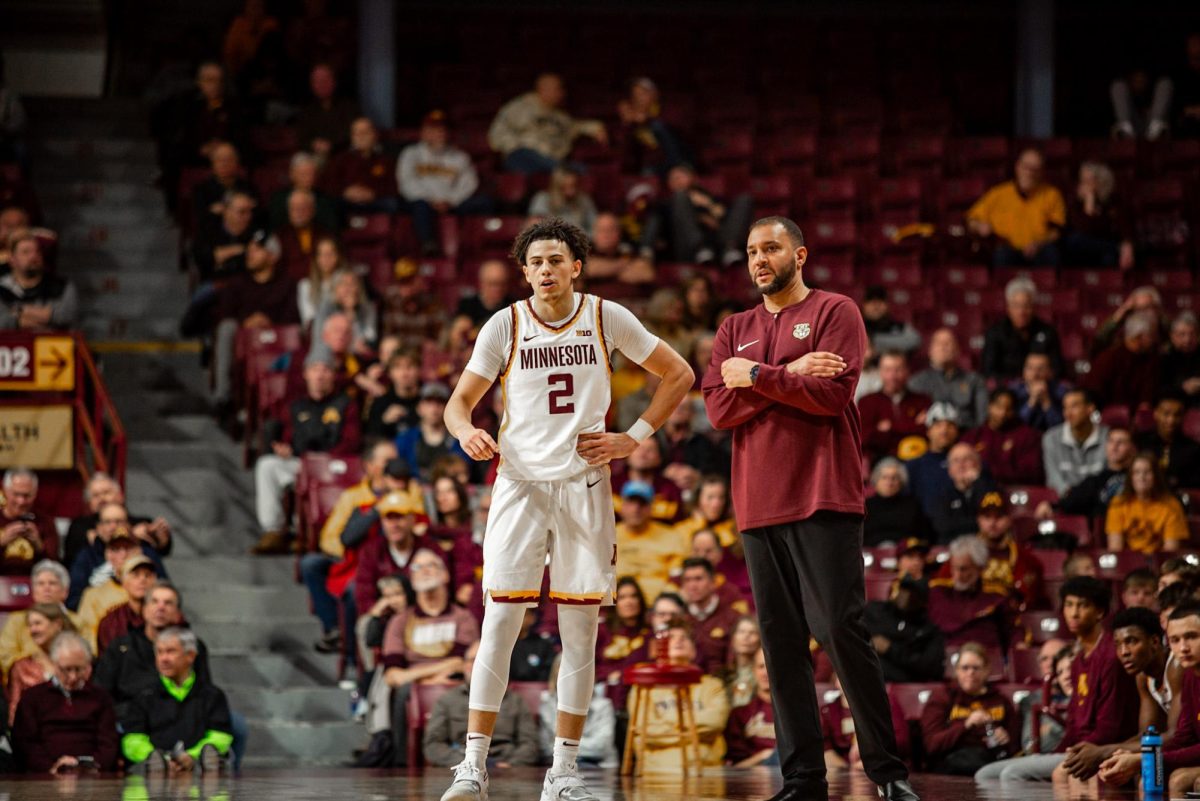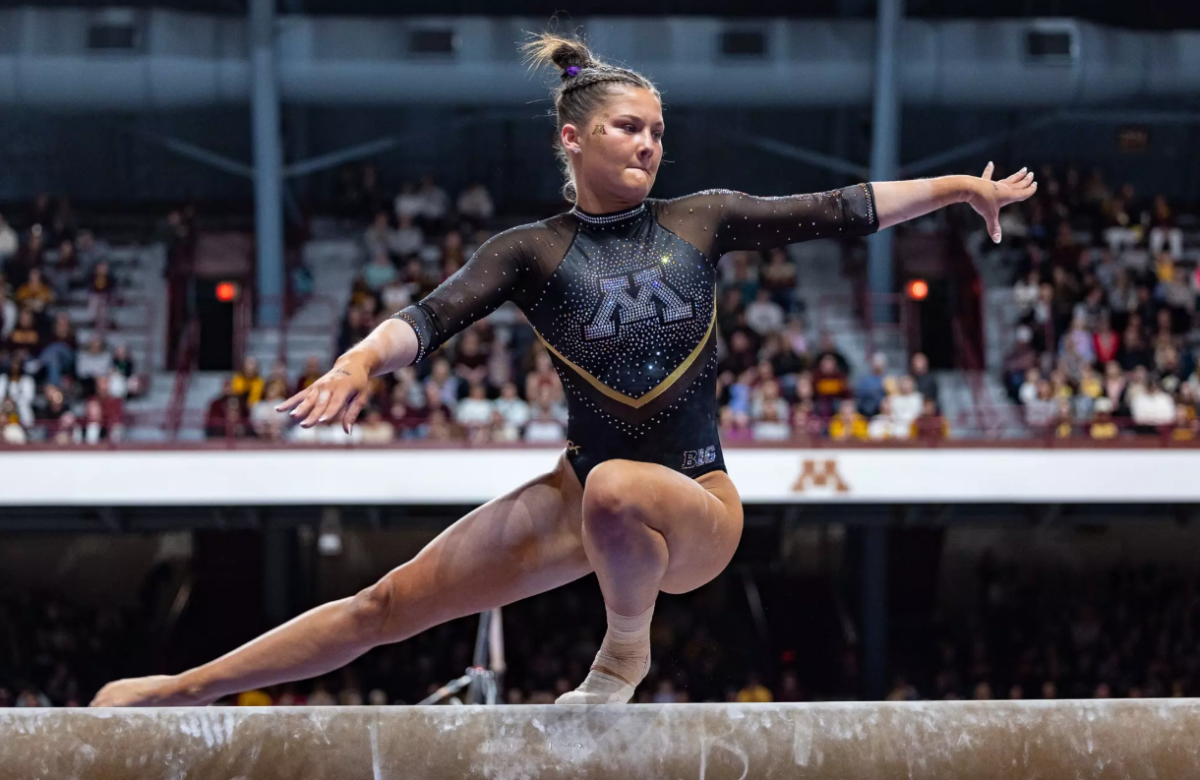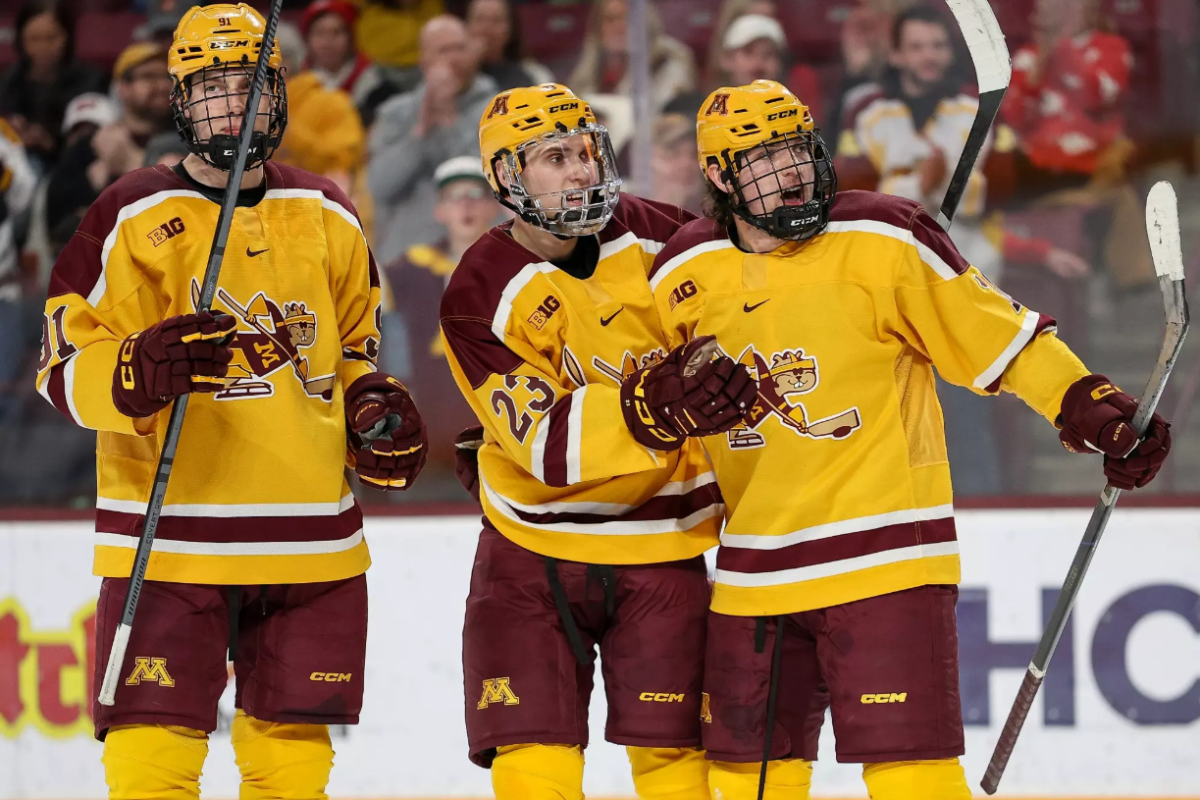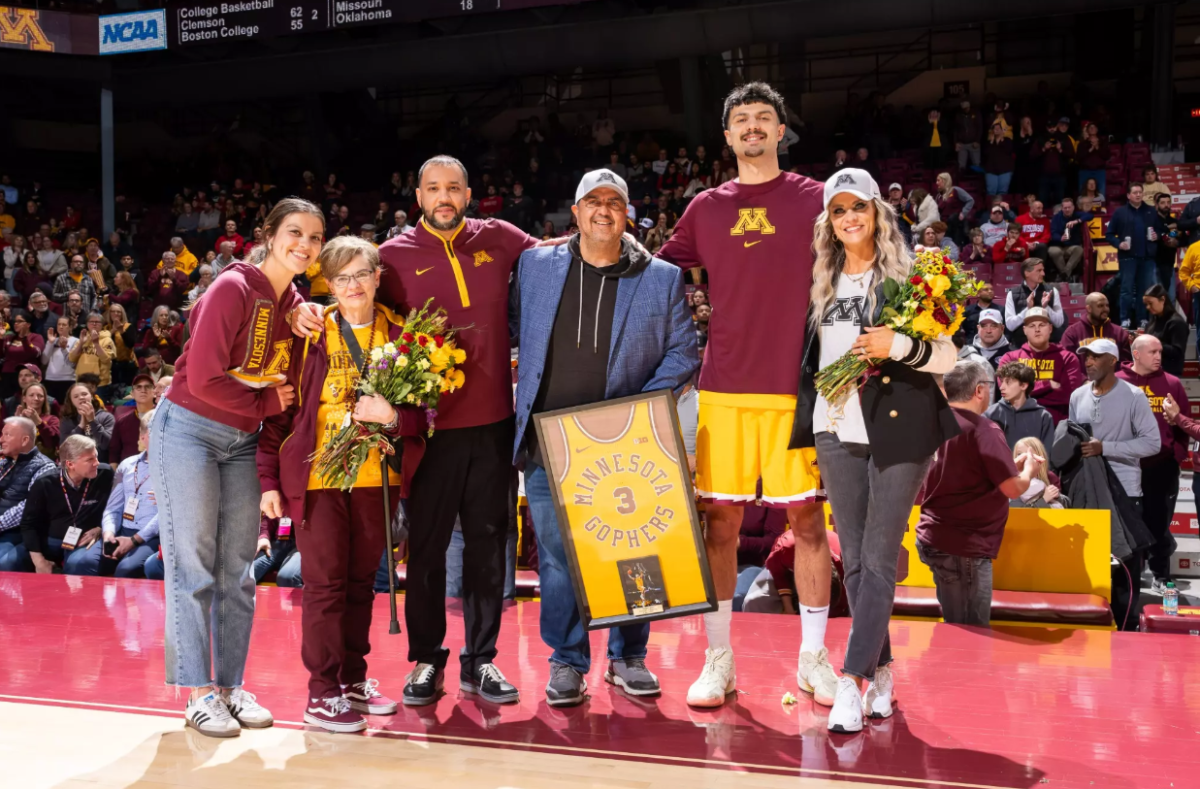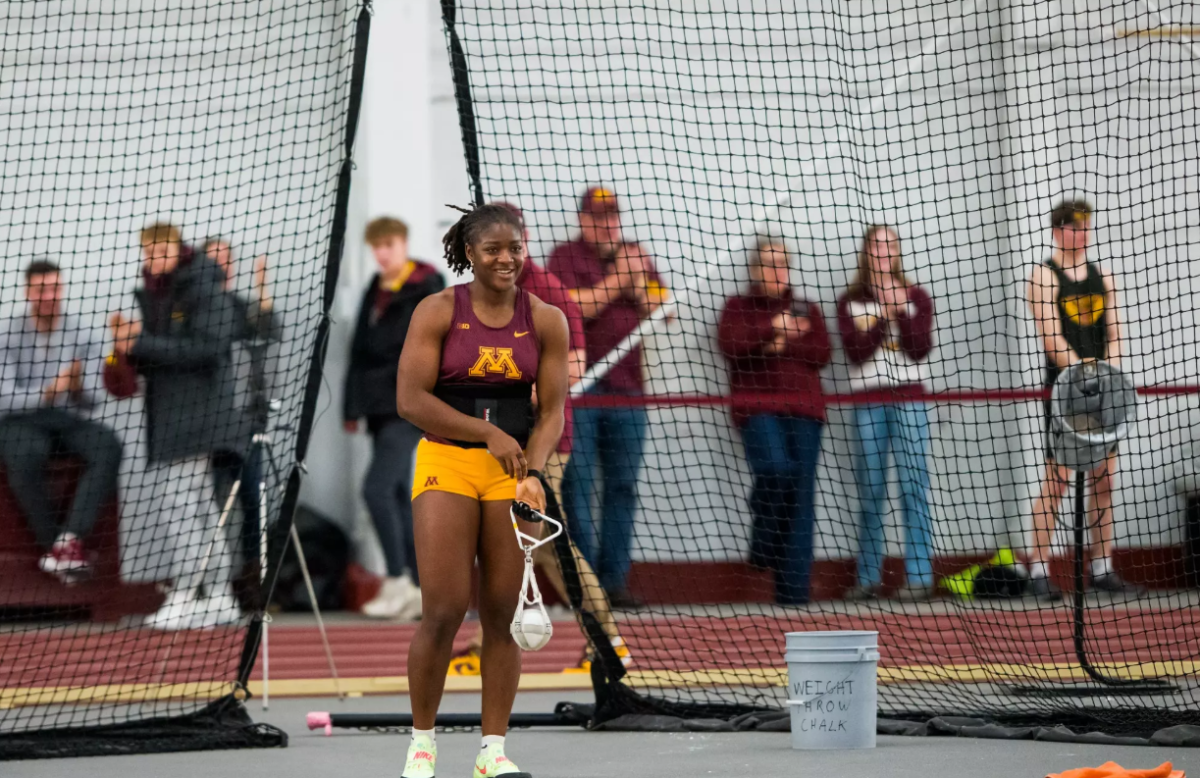In a little more than 24 hours Glen Mason’s future as head football coach for Minnesota would be decided.
Nine seasons as the man heading the Gophers’ football program, and there was still uncertainty as to whether he would get even one more during the Music City Bowl on Dec. 30.
And Minnesota’s performance in that game was a microcosm of the Mason era ” full of early promise and ending in disappointment.
The 34-31 loss to Virginia proved Mason didn’t deserve a contract extension. Without the extension, Mason likely would have been done as Gophers’ football coach.
Instead, a day later, the coach agreed to a five-year extension that made him the second-most well-paid head man in the Big Ten. Though the contract has not been signed yet, Mason will get an annual salary of $1.65 million from the state of Minnesota.
The Big Ten coach with the second-highest annual salary has never won six conference games, let alone a conference title. He’s never been to a New Year’s Day bowl, not to mention a Rose Bowl.
He makes more than Northwestern’s Randy Walker, who earns $900,000 a year and won a share of the Big Ten title in 2000.
Mason will make more than Purdue’s Joe Tiller. Tiller takes in $1 million annually, and went to the Rose Bowl in 2000, has been to two other New Year’s Day bowls and has won six conference games four times.
Michigan’s Lloyd Carr makes $1.1 million a year. In 11 years as the Wolverines’ head coach, Lloyd Carr has eight seasons of at least six conference wins, three Rose Bowls, an Orange Bowl and a national championship.
Kirk Ferentz of Iowa is paid $1.2 million annually. All he’s done is win a share of one Big Ten title, win at least seven conference games twice and gone to four consecutive New Year’s Day bowls, including an Orange Bowl after the 2002 season. His name also is constantly bandied whenever an NFL head coaching job opens.
In 2003, Ohio State’s Jim Tressel signed a six-year extension, with the yearly salaries starting at $1.3 million and escalating to $1.8 million. Pretty comparable to Mason’s yearly numbers, only Tressel has three Bowl Championship Series appearances, a piece of two Big Ten titles and one national championship.
All those coaches have done far more on the football field than Mason, but Mason somehow wrangled a fatter paycheck.
Some have argued that Mason has “done more with less.” But he hasn’t done that much, and he doesn’t have much less.
The rallying cry for Mason supporters was that with the lack of football resources and lack of administration support, it is impossible to field a top-caliber Big Ten team. That crutch proves faulty when the administration commits $1.65 million a year to a coach who only can take the program to a mediocre level.
And that excuse has never really held water. Granted, the Metrodome is the worst college football venue in the Big Ten. But from Sunday through Friday, the Gophers’ facilities aren’t inferior to the rest of the Big Ten. The Gibson-Nagurski practice complex is up to Big Ten snuff.
Another common refrain from those who want to keep Mason is: “Who are we going to get who’s better?”
Maybe a hot assistant coach. Mike Stoops ” fresh off tremendous success as Oklahoma’s defensive coordinator ” had to completely rebuild a program at Arizona. Mark Mangino went from offensive guru at Oklahoma to building a program from practically scratch at Kansas. Ralph Friedgen was hailed as a mastermind as Georgia Tech’s offensive coordinator and he took a head job with Maryland, a program that hadn’t been to a bowl game in 10 years.
Minnesota is in much better shape than Kansas, Arizona and Maryland were. Perhaps Auburn offensive coordinator Al Borges could have been lured to Minnesota. Maybe Texas defensive coordinator Gene Chizik would have jumped at the head job for a team that went to a bowl game the previous year.
Glen Mason’s Minnesota numbers don’t add up to his huge contract. They don’t even add up to him heading the Gophers’ program in 2006.
But for some unknown reason, athletics director Joel Maturi and company think it means he should be the second-most well-paid coach in the conference.
” Matt Anderson welcomes comments at [email protected].


